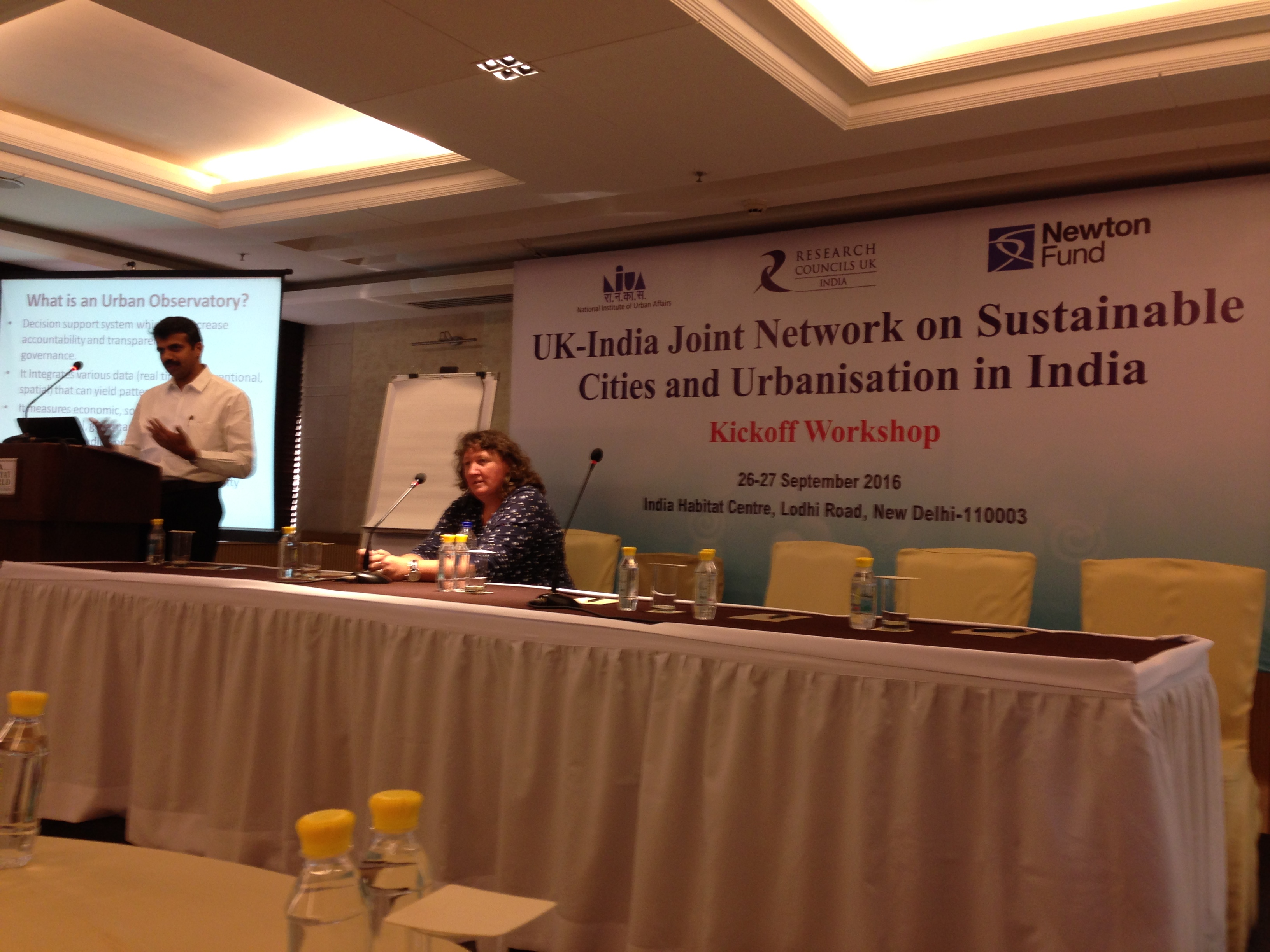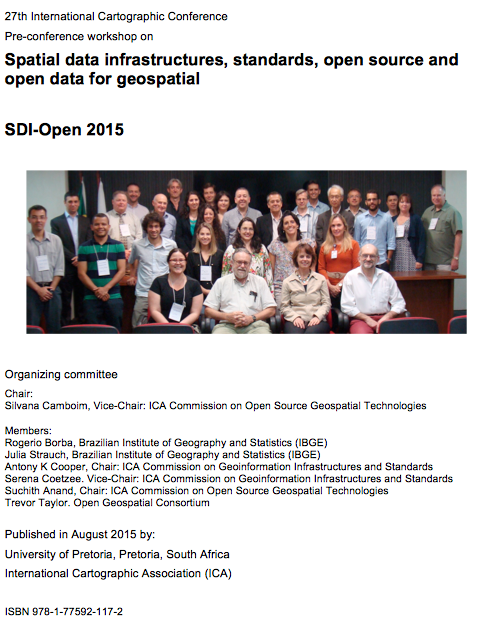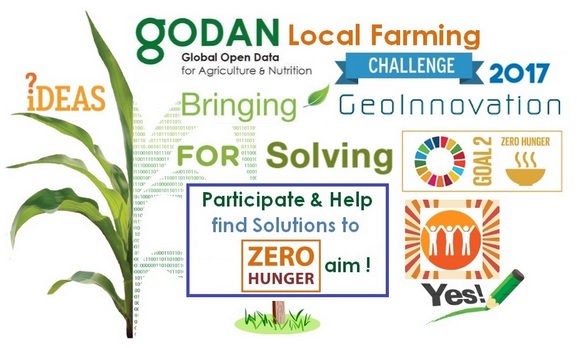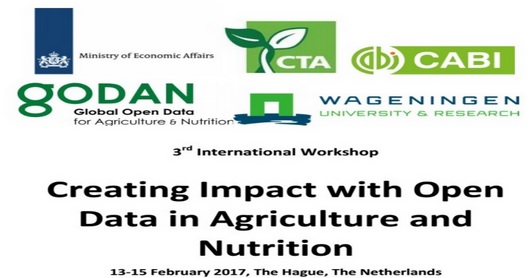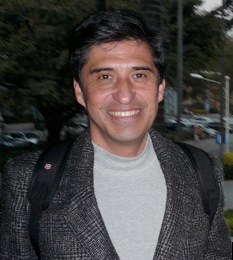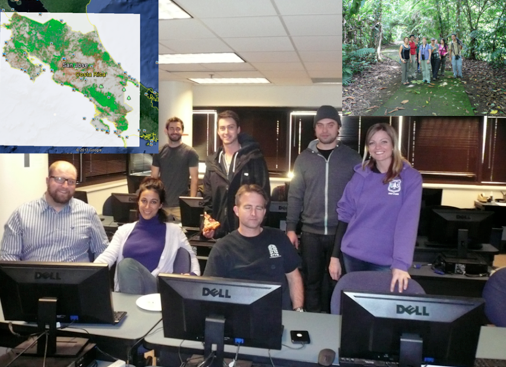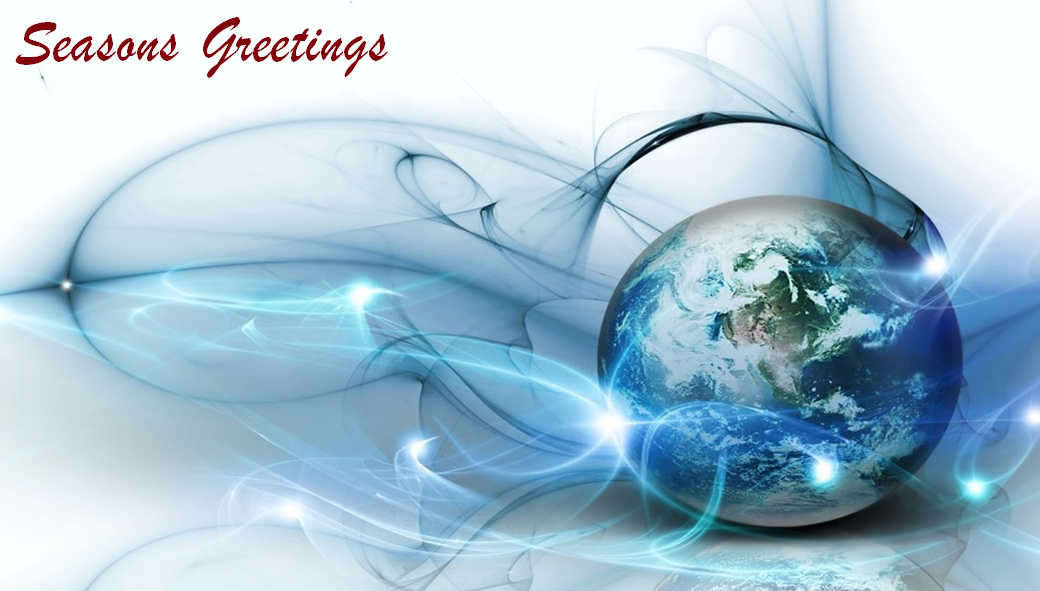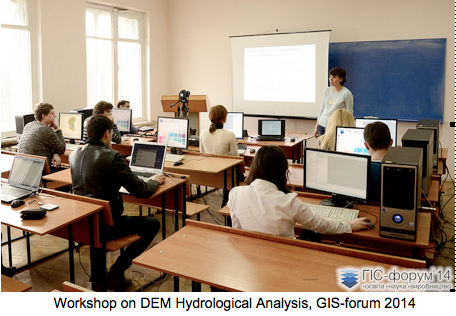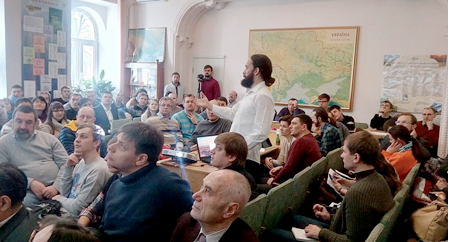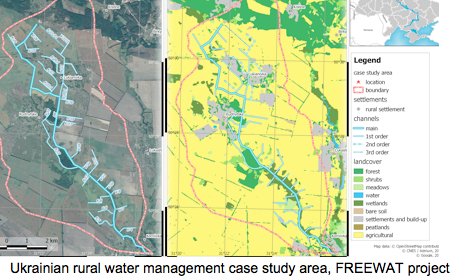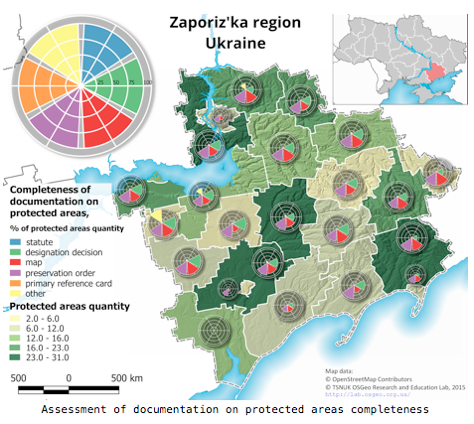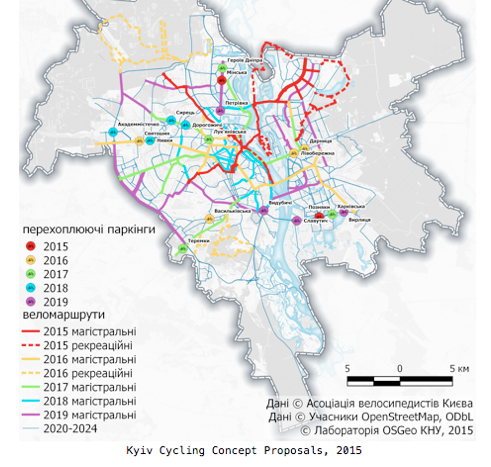On behalf of GeoForAll and the Open Source Geospatial Foundation, it is my great pleasure to introduce Dr. Mark Ware of the University of South Wales, UK as our GeoAmbassador. Mark is a Reader in GIS at the University of South Wales, United Kingdom. His research interests include automated map generalization, GIS-based optimization algorithms, GIS for disaster management, spatial data structures and Open Source GIS. He has studied, researched and worked in GIS since 1989. During that time, he has been involved in many GIS teaching, research and consultancy projects with partners that include BECTA, Ordnance Survey, BGS, MULRI, Environment Agency, West Coast Energy and Admiral. Mark regularly present research results in the academic literature and enjoy attending and presenting at conferences.

University of South Wales (previously the University of Glamorgan) has been active in the fields of GIS education and research for over 30 years. Most of this activity is carried out by the university’s GIS Research Unit (http://gis.research.southwales.ac.uk/), which is currently led by Prof Gary Higgs. The unit has always been based in a computing department – currently it is part of the School of Computing and Mathematics. This has meant that much of its teaching and research has looked at GIS from a computing perspective. Mark was key lead in helping establish the first Open Source Geospatial lab in Wales as in November 2013 the unit joined GeoForAll and it became the first Open Source Geospatial lab in Wales.
Mark Ware provided the following updates on FOSS GIS and Teaching at USW
“GIS is taught at both undergraduate and post-graduate level; USW is proud to have delivered one of the UK’s first Masters programme dedicated fully to GIS. Traditionally, our teaching has made extensive use of proprietary software. While still using this software on some of our modules, in recent years FOSS has played a significant role in our delivery. At undergraduate level, QGIS is used extensively as a means of introducing first-year mainstream computing students to the world of GIS. The fact that the software is readily and freely available for download and installation make it an attractive option. Students almost always like the subject – we try our best to make their studies as interesting and relevant as possible. This is achieved by emphasising the computing aspects (such as discussing underlying algorithms, talking about and demonstrating the ability to create plugins, and emphasising good data modelling and design) and by the use of data sets and example applications that are local (this is facilitated to a large extent by access to open data products such as OSM and https://data.police.uk/) Second and third year students have dedicated modules in which they can learn about spatial databases (PostgresSQL/PostGIS) and web mapping (GeoServer, OpenLayers and Leaflet); the emphasis here is on the design, implementation, deployment and administration of systems, rather than simply their use and application. Our post-graduate teaching places more importance on the applications of GIS, with modules often being taken by students from courses in other academic subject areas (including geography, environmental studies and BIM); QGIS is again the primary software used. The group also has experience of delivering short courses in GIS to local businesses and organisations. The most recent of these, which took place at USW in June 2016, was a free Introduction to GIS course. This was organised and sponsored by WISERD (http://www.wiserd.ac.uk/) and focused on the use of QGIS and freely available socio-economic data sets.
USW has a strong-track record in GIS research, with notable success in various areas, including: automated cartographic design (map generalization and label placement), terrain modelling, data compression, accessibility modelling and population estimation modelling. Here are some examples of some of our more recent projects, each of which involves the development or application of open-source solutions:
One of the first FOSS projects undertaken at USW involved the design and implementation an online geoportal, the main function of which is to enhance the ability of researchers to search for and find socio-economic research data relating to Wales. The aim is to encourage collaborative research and re-use of data. This work was carried out as part of our involvement with The Wales Institute of Socio-Economic Research, Data and Methods (http://www.wiserd.ac.uk/). The portal was built using various open-source technologies, including PostgresSQL, PostGIS, GeoServer, Apache, OpenLayers and GeoExt. It was developed by Dr Richard Fry (now at Swansea University, UK) and Dr Rob Berry (now at the Countryside and Community Research Institute, UK).
A recently completed project1 has considered ways of improving crowdsourced mapping in developing countries (particularly in East Africa) for the purposes of disaster preparedness. In many developing countries, maps of vulnerable region tend to be low resolution and/or not up to date. There are many examples of crowdsourced mapping initiatives that have taken place after a disaster has occured, but the geographic information becomes available perhaps days or weeks later. By populating digitals map before a potential disaster, various advantages may be gained, including the information being available at the outset of disaster response. The project focused specifically on the Mbale region of Uganda, with which USW has close links. At the beginning of the study, the region was poorly mapped. Early in the project, its main investigator, Dr Dave Farthing, ran several courses in Mbale to train locals in the use of GIS and GPS for data gathering and data analysis (see image below). The project identified competing factors that either inspire/discourage communities to/from adopting and using mapping technologies. The main output from the project is a new model (called the TASUT model) for encouraging technology acceptance and sustained use in the context of digital mapping in developing countries, together with an accompanying set of detailed guidelines for its application. These guidelines suggest (along with many other things) that appropriate training, the use of free open-source GIS, the adoption of standard data formats and making GI available under an open or Creative Commons license are all key to promoting the initial acceptance and then sustained use of mapping technologies. The hope is that we can make apply, and further develop, the TASUT model and its guidelines in future mapping/GIS projects – please get in touch if you are interested in collaborating!
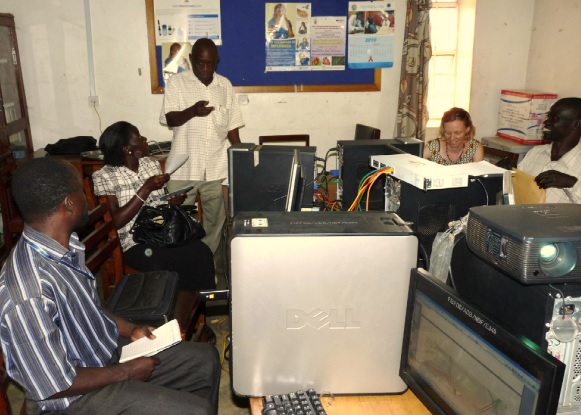
A soon to be completed PhD project (being undertaken by Jon Britton and supervised by Dave Kidner) has considered the problem of spatial data processing on the web using open standards and open source software. To date the work has produced a detailed specification for a generic web-based GIS client application able to access data and processes provided by standard geospatial services. This specification has been used to develop a prototype browser-based GIS application based on existing open-source software. The prototype, named SmartWPS, can integrate data from standard sources, such as WFS, WCS and WMS, and process this data using remote WPS. ”
Geo for All is committed to work towards the vision of the United Nations 2030 Agenda for Sustainable Development for building a better world for everyone [1]. Open Education is the simple and powerful idea that the world’s knowledge is a public good and that technology in general and the internet in particular provide an extraordinary opportunity for everyone to share, use, and reuse knowledge. Openness is key for true empowerment and sustainability [2].
We are proud to honour Mark as our GeoAmbassador and we are extremely grateful for his contributions to Geo For All.
Best wishes,
Suchith
Dr. Suchith Anand
http://www.geoforall.org/
https://opensourcegeospatial.icaci.org/
GeoForAll – Building and expanding Open Geospatial Science
[1] http://icaci.org/maps-and-sustainable-development-goals/
[2] https://opensourcegeospatial.icaci.org/2016/07/sharing-is-caring-why-openness-is-key-for-true-empowerment-and-sustainability/
1 David W. Farthing, 2015, “Theory of Acceptance and Sustained Use of Technology: A technology acceptance model adapted in the context of digital mapping for disaster preparedness in East Africa”, PhD Thesis, available from the University of South Wales (soon to be available from the British Library)

